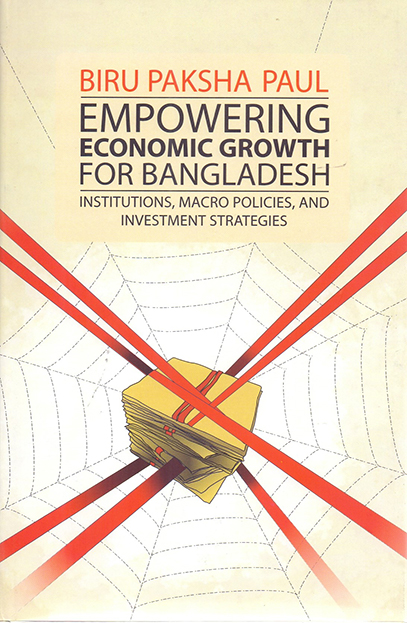- Shop
- Empowering Economic Growth for Bangladesh: Institutions, Macro Policies, and Investment Strategies
Empowering Economic Growth for Bangladesh: Institutions, Macro Policies, and Investment Strategies
https://uplbooks.com/shop/9789845062619-empowering-economic-growth-for-bangladesh-institutions-macro-policies-and-investment-strategies-8387 https://uplbooks.com/web/image/product.template/8387/image_1920?unique=3d813f3
| Language: English |
Tags :
Book Info
Bangladesh has recently turned out to be an intriguing model of economics. It warrants faster growth to help the economy achieve the next level of development. The book argues how macro policymaking and institutions can empower growth to make this graduation possible. This work shows how the market economy along with the spirit of liberalization has energized Bangladesh to be a growth story and how further reforms and apt investment strategies can make the country’s development sustainable in the twenty-first century. The book shows how monetary instruments adjust to fiscal targets and argues for better coordination between monetary and fiscal policy. While a gradual improvement in investment may not prove effective to accelerate growth, an investment blitz must be carried out through even outsourcing the management if needed. The benefits of the demographic dividend will fizz out in 30 years, hurrying up the need for rapid building of infrastructure and energy facilities. The book is different from a typical publication on the Bangladesh economy. Its unique organization turns out to be a pleasant collection of economic stories mingled with experiences and anecdotes that engage the readers of diverse backgrounds. Its argumentative style would be motivational and thought provoking for stakeholders and policymakers who strive to empower growth in a sustainable manner. This work stands out to be a handbook of investment strategies, macro policies, and institutions – which the author thinks are most appropriate for accelerating growth in a vibrant Bangladesh.

Birupaksha Paul
Birupaksha Paul is a professor of economics and finance at the State University of New York at Cortland. He holds an MSS in economics from Dhaka University, an MBA in finance from the University of Technology-Sydney, and a PhD in economics from Binghamton University, where he also serves as guest faculty. In 2015, he received SUNY Cortland’s Outstanding Research Award. Paul served as chief economist at Bangladesh Bank (2015-2016) and is a South-Asian counselor at Cornell University. He taught at Dhaka University and was a visiting fellow at BIDS in 2017. A pioneer in debate writing in Bangladesh, Paul won numerous accolades in debate and public speaking.



